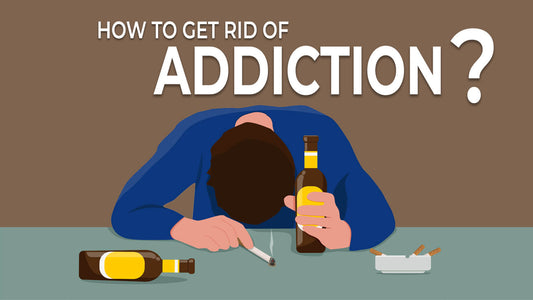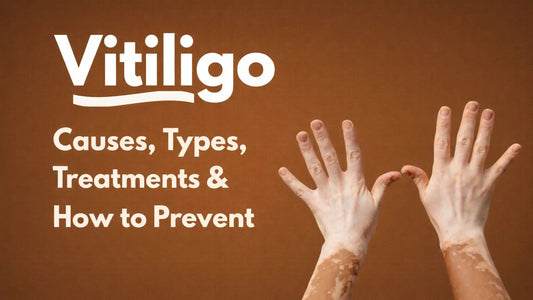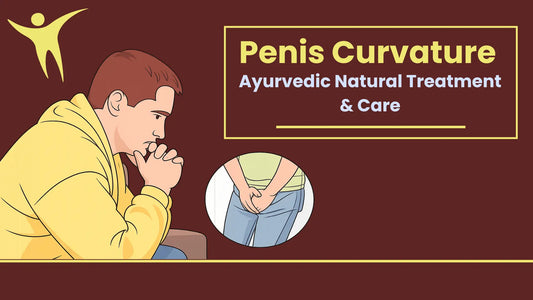
How to Get Rid of Addiction? Effective Strategies
What is Addiction?
Addiction is a form of psychological disorder that makes the person dependent on anything or anyone even though that substance, activity, or person may be harmful. It is a consistent craving for a specific substance.
The problem of addiction happens when the person is suffering from anxiety and depression. It is a pattern of escapism that a person looks for when he or she is deeply wounded from the inside. It is more of a psychological wound damaging the brain nerves and thus making the person incapable of taking control of himself or herself positively. It can make the person physically weak and sick.
Quitting any form of addiction may be a struggle for anyone who may have acquired it through peer pressure, curiosity, genetic factors and frustration and failure in academics and career. Dependence may vary from person to person.
Apart from becoming addicted to different types of drugs and alcohol, people often get involved with sex, gambling, shopping, exercise and eating.
The Different Types of Addiction
Addiction is a compulsive disorder as it may make anyone succumb to depending on any substance even after knowing that it might harm him or her.
It compels the person to engage in different substances even if such substances may not seem to be doing any good rather causing damage to the neurons and rewarding pleasure. Several types of Addiction are
Substance
It may be harmful chemical substances such as alcohol, tobacco, prescription drugs, cocaine, heroin and other prohibited drugs. These substances cause neurological disorders and poor physical health conditions.
Alcoholism
Such addictive substances make the person lose control over his mind and actions. Alcoholism tempts the person to use alcohol constantly and makes him or her sick. It weakens the nerves, raises the cholesterol levels and does not let the blood flow through the blood vessels. Regular consumption of alcohol damages the liver and causes cirrhosis.
Nicotine
Nicotine is an addictive substance that compels the person to abuse cigars, and cigarettes or depend on chewing tobacco. The intensity of nicotine addiction may vary from person to person.
Its outcome may be severely harmful to health by raising the conditions of restlessness, sleep disturbances, disruption in attention and respiratory and liver disorders. Urging to use nicotine increases the level of blood pressure and heart congestion.
Drug Abuse
Different drugs can make a person weak and dependent and that may be illicit drugs and the medicines prescribed by the clinical experts. There is always a risk of prescribed dosage of medications triggering mild to severe addiction.
Gambling
Act of gambling is also a repetitive disorder as it raises the expectation level of the person to get rewarded and make an impact on the mind with pleasurable effects. It may be an act of fun for many people who are looking to recover from depression, stress and anxiety.
You may fall into the trap of gambling when you are undergoing the problem of poor mental health. Depression, anger or sadness often drags the person towards gambling to feel good for some time.
Dependence on the Internet and Technology
Some of us are hooked on them and use different digital devices for long hours. Playing online games and interacting on social media platforms continuously for a long time may make anyone ignore or forget their responsibilities at professional and academic levels. Therefore, such actions may contribute to negative results and damage to the eyes and brain nerves.
Behavioral Disorder
The behavioral disorder involves disorderly actions in shopping, exercising, severe eating and uncontrollable sexual activities that may be dangerous. Excessive shopping may hurt your spending habits. It may increase your expenses.
Binge eating may increase your weight and cause digestive problems including bloating of stomach and gas. Irresistible sexual conduct will degrade your moral level and increase the risks of spreading infection and put your life in danger.
Common Signs of Addiction
The problem of addiction may vary from one person to another.
Shows a lack of concentration at the office and home
Regular consumption of alcohol would not let the person focus on their studies and career. With or without drinking or drug abuse, the addict would not have enough stimulation to pursue studies or work. Binge drinking affects the neurons of the brain and as a result, one suffers from loss of memory or blackouts.
Going through struggle in relationships
Dependence on drugs and alcohol prevents the person to act positively or think sensibly. Consumption of such harmful substances and withdrawal symptoms come in the way of bonding intimately and emotionally with the spouse.
The problem of addiction disturbs the mood of not only the addict but also his or her spouse and the rest of the family members and other members of society.
Getting no inner strength while doing the work.
Consistent drinking of alcohol and drug abuse weakens the nervous system and does not let the person concentrate on any work or studies.
It does not let the person think positively and do anything positive. It is because the free radicals generated by alcoholism and consumption of drugs weaken the nerves of the body and mind.
Losing weight and facing loss of appetite
Regular drug abuse and alcoholism hamper the metabolic activities of the body of any person. The rate of toxicity increases and does not allow the nutrients to be retained in the body.
The toxic elements of alcohol or any illicit drug disturb the digestive mechanism by weakening the liver, stomach and intestine. Alcoholism increases the level of cholesterol and damages circulatory health and heart conditions.
Not able to surrender the weakness to consume drugs or alcohol
This is what happens when you lose control over yourself in drinking alcohol or abusing any form of drug irrespective of recurring trials. That is how craving works, taking control over your mind or brain nerves by stimulating the person to drink again.
Not realizing his or her guilt for drinking alcohol or abusing any form of drug.
Alcoholism or any form of drug abuse increases the level of dopamine which does not let the person realize what is right or wrong or the negative consequences of drinking alcohol.
The addict would be in a state of pleasure due to increasing levels of dopamine and would enhance the urge for more dependence. Thus, the addict would not find himself guilty of binge drinking.
How to Assess Your Own Risk for Addiction
The severity of addiction may differ from one person to another. It is about self-analyzing the harmful outcome of drinking alcohol or consuming unlicensed and prescription drugs. It is about verifying what causes triggers and what measures can be taken to quit or control the craving habit:
Given below are the ways of self-analyzing the risks of addiction:
Making the Decision to Quit
Determination to quit or stop alcohol or any form of drug depends on how far the consumption of alcohol and drugs has caused harm to your mind and body.
Sometimes, it may be too difficult to stop addiction when you may be taking in excess quantities or regularly. It is about lessening the quantity of consumption or addictive substances that you can do steadily to alter your craving habit.
The Importance of Self-Awareness
You must take time to understand the level of effectiveness of alcohol on your body and mind. You must do a deep analysis of your method of abusing addictive substances.
It is also necessary to analyze to what extent the addictive substances are hampering your work, and relationships and influencing your behavior at home and in society.
Setting Realistic Goals
It is necessary to analyze whether it would be better to set a limit on the consumption of alcohol and drugs or completely stay away from all these addictive substances.
You must make an appropriate decision accordingly as per your health conditions. It is very difficult to quit any addictive substance in one day, so setting a timeframe of weeks and months is necessary. You will be able to gradually overcome the addiction problem.
Creating a Quitting Plan
It is about making arrangements or plans to minimize the use of addictive substances, taking help from a professional expert for counseling and medication and altering lifestyle habits.
Identifying Your Triggers
It is about discovering the people, places and objects that can provoke drinking alcohol or abusing drugs. You must also check on the situations, emotions and social conditions that raise your urges.
You can self-identify with different forms of triggers of alcohol which may be emotional trauma, stress, pressure of work or studies or a bottle of alcohol, passing by the wine shop or the darkest corner of the city where the drugs are sold. You can share your personal experience about all such factors that can make your conditions worse until you take one peg or abuse any drug.
The Benefits of Therapy
Taking an expert’s help will have faster effects on recovering from the stage of alcoholism. Associating with the expert or counselor will help you explore the right techniques to heal the addiction problem. You will be assessed accordingly with your triggers and administered with appropriate medications.
Using Ayurvedic Solutions
It would also be a good idea and decision to rely on Ayurveda for managing drug addiction. You will surely get positive results with this ancient form of medicinal system.
Vidarikand, Ashwagandha, Tulsi, Amla, Brahmi, Soya, Punarnava and Giloy have been used since ancient times to revitalize the body, mind and spirit and restore the weak immune system.
Tej patta is another herbal spice that works as an appetite and reverses the taste buds. If looking for the best supplements for alcoholics in Ayurveda, then one can get the benefits of all such herbal ingredients in Addiction Killer powder or liquid to overcome the craving habit and experience steady wellness without experiencing any relapse of the problem or side effects.
You can also make changes in your lifestyle through yoga and meditation to control your craving habit.
Medication-Assisted Treatment
You can seek help from an allopathic doctor or psychologist by visiting the rehabilitation center or a hospital. Either you will be offered personalized treatment in a residential way or simply by coming from home.
Support Groups
You can further contact Alcoholics Anonymous, Narcotics Anonymous and different support societies. You will be assisted through group discussions and practical considerations. You may be able to develop new confidence by becoming part of such interactive social groups wherein you can get in touch with the members who may have undergone similar pressure of addiction.
Managing Withdrawal Symptoms
Regular consumption of drugs or alcohol makes the person dependent and he or she finds it hard to discard such a deadly habit. It is because the body and above all the mind become adapted to the presence of such substances.
A person may be addicted to different types of substances, it may be alcohol or various types of chemical substances like opioids, benzodiazepines or gambling.
Information about withdrawal symptoms is necessary for resorting to appropriate treatment options.
Understanding the withdrawal process
It is necessary to examine the withdrawal symptoms to check the addiction problem and its related symptoms.
Given below are the specific points to determine the withdrawal symptoms which may be mild or severe:
Firstly, let’s understand what is withdrawal process
It is about how a person feels responsive after consuming a certain quantity of alcohol or drug and how far the addict can cope without it. The withdrawal process is about rebalancing the physical metabolism and mental state after discarding the consumption of drugs and alcohol.
How does withdrawal begin and last with an addict?
It is about the onset of the withdrawal and its duration which may depend on the substance used or consumed. It may highlight how the addiction may affect the physical and mental aspects of the individual. To understand the progress of withdrawal, it becomes necessary to check how far it continues, which may be days, weeks and months after quitting or stopping any addictive substance. It has been noticed how long abuse of addictive substances does not let the person discard the substances so easily.
Different types of withdrawal symptoms
It is about the physical and psychological symptoms one can experience after consuming small, medium, or large quantities of addictive substances. The level of effectiveness depends on how long you have been without consuming alcohol or drugs. Some may have mild symptoms and others may experience severe and it would be necessary to diagnose how far such symptoms are damaging your health, daily activities and relationships.
Treatment
Treatment involves diagnosis of the patient's condition by verifying their symptoms, counseling, medication and engaging with any support group.
Common Withdrawal Symptoms
Such symptoms depend on the duration the addict has abused alcohol or any form of drug. Signs or symptoms may depend on the age, physical wellness, mental and emotional aspects and time gap after the duration of the process.
Treatment will take place after verifying the given symptoms of the addict:
- Depression
- Anxiety
- Body pain
- Headache
- Memory disorder
- Heart problems or respiratory disorders
- Tendency to commit suicide
Tips for Managing Withdrawal Symptoms
There can be challenges in controlling the withdrawal symptoms. However, with the support of specific strategies, therapist’s help, medication and specific exercises, managing the withdrawal symptoms may become easier.
Let’s share some information concerning the withdrawal symptoms in the following points:
- Getting professional support from any psychiatrist or therapist for controlling the abnormal symptoms or level of intolerance without taking any alcohol or drugs.
- Joining the support group and discussing the experience of withdrawal and finding the strategies for controlling the addiction and withdrawal. It would help in boosting confidence and bring relief from stress. You will be learning about the coping mechanisms to overcome addiction problems and that may be by listening to music or engaging in any creativity which may be joining art school and practicing yoga asanas like pranayama and meditation.
- Having nutritious and delicious meals rich in vitamins, proteins, iron and various forms of minerals can help in improving taste buds and boosting the ability to avoid any form of addiction.
Associating with healthcare professionals and addiction specialists will help in discovering the treatment in a personalized way. Each addict may have a unique experience with addiction. To get over the withdrawal problems smoothly, a therapist or counselor will assist you with appropriate medication, counseling and exercise as per your severity level or impact on your health conditions.
Conclusion
Addiction may be a psychological disorder that may impact different addicts with varying stressful conditions. Every individual has a unique metabolism and mind and he or she may adapt to different forms of substances in varying ways. Falling into the trap of different circumstances, people get addicted to harmful substances or activities.
There are different types of addiction and that may be alcohol, drugs and gambling. It is too difficult to get rid of addiction and staying away from addictive substances may be too struggle some for many people. Contacting health clinics, and support groups, using any ayurvedic medicine and holistic measures may probably bring out good recovery results.

Dr. Hindika Bhagat
Dr. Hindika is a well-known Ayurvedacharya who has been serving people for more than 7 years. She is a General physician with a BAMS degree, who focuses on controlling addiction, managing stress and immunity issues, lung and liver problems. She works on promoting herbal medicine along with healthy diet and lifestyle modification.



